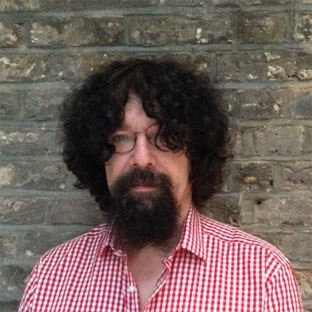There’s an old adage that goes ‘Sticks and stones will break my bones. But words will never harm me’. But it’s clearly not true as anyone who has been called a name can testify. And, many of us have called someone a hurtful name or said something spiteful at some point too. A well-chosen word or phrase can harm and wound as deeply as a weapon and cause scars that mark and label the recipient for life.
September is National Recovery month. But what is recovery? What does it look like? Can full recovery ever be achieved?
Ruminating on these questions on my return from the 7th UK Recovery Federation conference ‘Stories of Hope: Transforming our Communities’ I was inspired to think about the language of recovery; about how it is used by the public, professionals and those people with substance misuse issues. And how it continues to be used when those affected embark on a recovery journey.
How the words used can reinforce the stigmatisation of an already marginalised group of people. Addict, abuser, druggie, smackhead, drunk(ard), alkie, dipso, sot, wino, lush, doper, the list goes on… .
Many people have a clichéd image of what an addict looks like. Ugly images and language reinforce the stereotyping and discrimination and are kept in the forefront of our minds by a sensationalising media; stories that elicit fear and hatred and that uses pejorative language which labels those affected and perceives them as having low morals, of being narcissistic, dishonest, to be avoided.
And to make matters worse these, and other, ‘put downs’ are used by those suffering the addiction: clean time, dirty test, gouching out, blowing it, being wasted, wrecked, lapse, relapse, addict… again the list goes on.
While some may argue that labels can be self-identifying. The 12-step programmes are a typical example of this’. The salutation of “I’m … and I’m an addict” each time before anyone speaks. But there is also a case that if you are told something for long enough it can become disempowering.
People with problematic substance misuse are a diverse, disparate group of individuals yet they are perceived and treated the same; derogatory nouns and adjectives easily and indiscriminately used to describe them.
Addiction is a mental health disorder and although treatable it is an ongoing battle. It is a chronic medical illness and yet is seen by many as a self-inflicted ailment, where the person cannot control their impulses and urges; a habit, a weakness or lack of will power.
Most people suffer from some sort of addictive behaviour. How many of us cannot be without a mobile phone, tablet, laptop, TV or radio? Don’t think you have a problem? Try going without sugar and caffeine for a week.
If you start getting anxious, twitchy or sweaty then you have an inkling of what substance dependency is like albeit without the potential life-threatening side-effects. If you try, and have the symptoms of digital withdrawal don’t worry help is at hand. I have previously written about undergoing a digital detox.
Substance misuse can be effectively treated and those that take the recovery pathway embark on a journey for life. It isn’t as simple as just stopping drinking, or using a drug, or both. The substance is just the symptom of the illness and treating the symptoms can be done fairly quickly (sometimes without medical intervention). Treating the person however is a longer, more complex process. It is about making changes to thinking patterns, attitudes, emotions, behaviours and working on problems and issues that affect the whole person.
Sobriety means not intoxicated; the Law makes the distinction clear. It’s illegal to drive after a certain level of alcohol has been imbibed but not illegal to have ever had a drink. Abstinence means refraining from. Neither mean recovery.
Recovery means different things to people and is a very personal journey - something that underpins the RSA’s Whole Person Recovery Programme . Not a one-size fits all process but an individual journey complete with stumbles, pit-falls, obstacles and hazards along its way.
Being constantly reminded of failings or weakness can easily become a self-fulfilling prophecy. If we are to help people break free from the hold of addiction then the language and attitude used toward and by those afflicted needs to reflect hope and belief. Where positivity replaces negativity; success over defeat; praise and encouragement instead of derision and dissuasion; and hope instead of despair.

Join the discussion
Comments
Please login to post a comment or reply
Don't have an account? Click here to register.
Hi Georgina
Using theterm addict defines a person by their illness. It makes no distinction betweenailment and person. You wouldn't label a person by their disease and addictionis a mental health disorder.
It is truethat many of the people suffering refer to themselves as ‘addicts’ but thatself-deprecation and feeling of ‘less-than’ is a common symptom of the illness.And re-enforcing that ‘lack of worthiness’ can hold the person’s recoveryjourney back, or potentially give them an excuse to relapse. Recovery is notjust simply stopping using a drink or drug, that’s abstinence. Recovery is aboutmaking positive changes to your life.
Terms like:person with addiction issues, person with substance misuse disorder, personexperiencing drug and/or alcohol issues; even client, patient, service user ifin treatment - all are preferable terms. Personally I hate the last three buthave failed to come across any term more suitable.
Thankgoodness we are past the days of calling a people by their mental healthailment, manic depressives, schizophrenics etc. Personally the term I, and therest of us in the Whole Person Recovery Project like is person (with thoughts,feelings, challenges, the same as us).
Hi Steve, I like your blog. Is addict a 'bad' word to use then? What language do you suggest people do use to describe people in recovery (or before they are) and their journey?